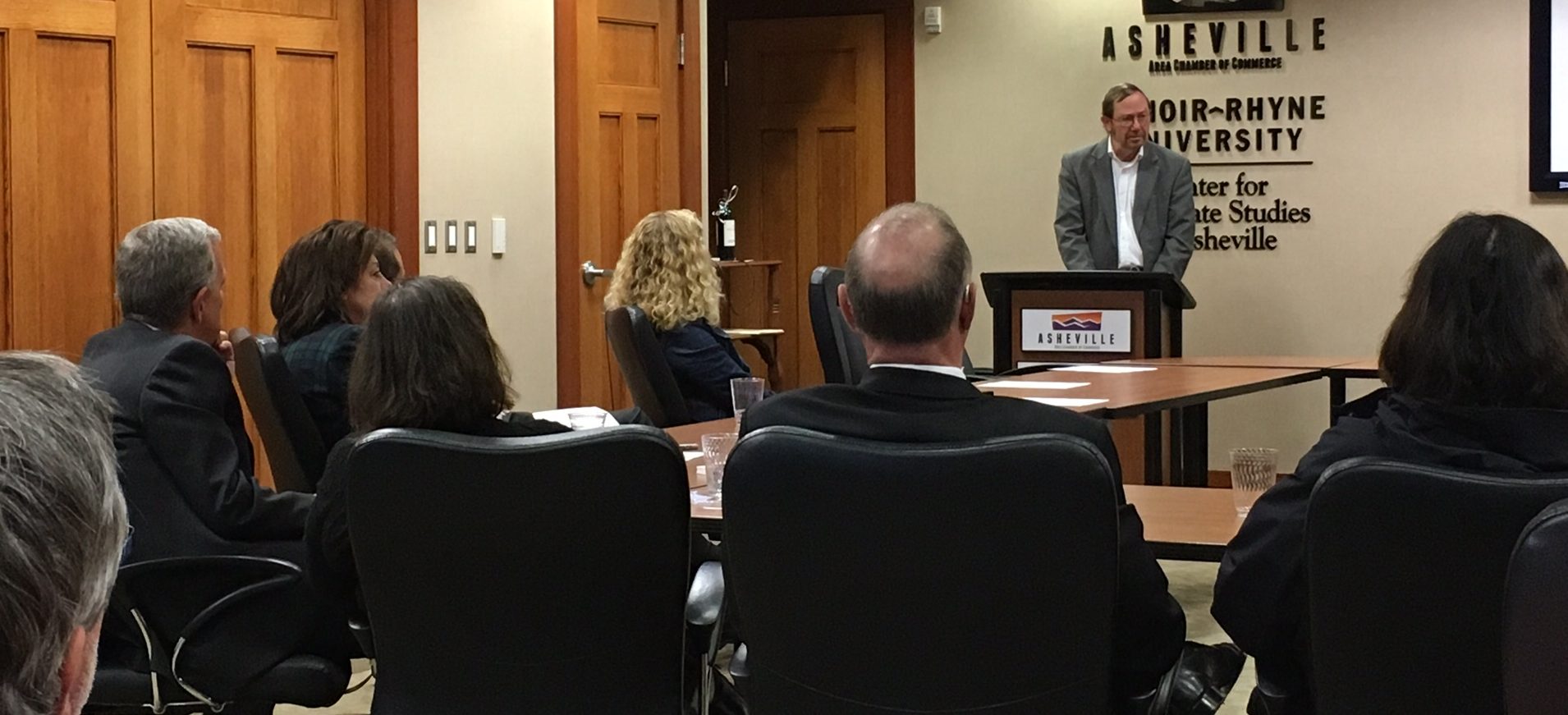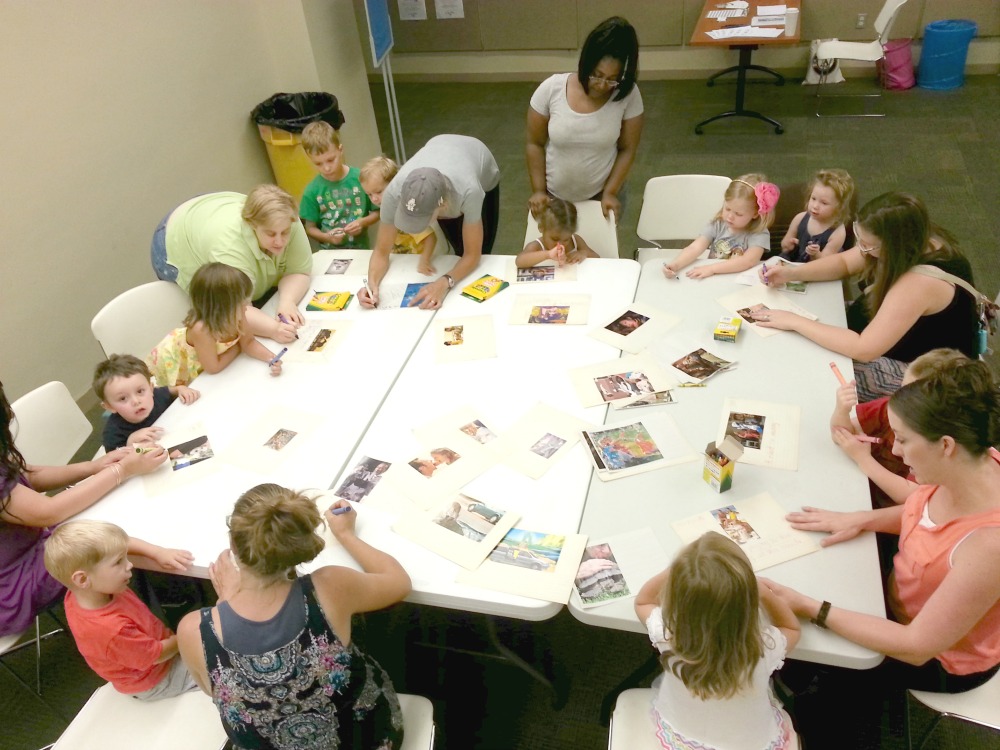The Literacy Council of Buncombe County
is now
Literacy Together
FAQs
Moving Forward: 2021 to 2025
Why did the Literacy Council of Buncombe County change its name?
The Board of Directors started a strategic planning process in January 2020. As we reached out into the community to solicit input, we realized something important: Those who know us hold us in high regard, but we are not that well known. For those who don’t know us, The Literacy Council of Buncombe County can be a confusing name, and it raised a number of questions: Are you an advisory group? Are you part of County government? Will you only serve people who live in Buncombe County? What exactly do you do?
In response, the Board decided to undertake a rebranding process: A new name; a fresh logo; and a focused approach to marketing. In short, a plan to attract and engage more people in our vision of creating a community in which literacy is accessible and achievable by all.
What about the history of the organization? Won’t that be lost?
We have a deep respect for the 35-year history of this organization and the incredible accomplishments of those who paved the way to where we are today. We will ensure that the values, integrity, and rich history move forward with us. There will be a clear link to associate the past with our new name.
How will the public know how to reach you if they still only know your old email addresses and website link?
For the next year, our new logo will include a line that states “formerly the Literacy Council of Buncombe County”. Anyone logging on to our former website address will be automatically directed to the new site, and emails addressed to staff at their previous addresses will also be automatically forwarded.
Rebranding can be expensive. What did all of this cost?
We run on a tight budget, so this was a major consideration. We are pleased to say that last May, we won a contest sponsored by Kudzu Brands for $10,000 in pro bono rebranding services. They guided us through the process and created the new logo. In addition, we received a foundation grant to cover the cost of new marketing materials such as banners and brochures.
Did you change the Mission and Vision of the organization?
The heart of our mission and vision remains the same. We have updated the statements to better reflect where we are today:
Our Mission is to transform lives and communities through the power of literacy.
Our Vision is a just and equitable community in which literacy is accessible and achievable by all.
Our Core Values include:
- Lifelong Learning
- Individual Dignity
- Equity and Justice
- Leadership and Innovation
What are the program goals for the 2021 to 2025 strategic plan?
The primary goal of our 5-year strategic plan is to do more of what we do well. Our four programs meet a critical need in the community, and we have not been able to keep up with the growing demand. So before we move into any new areas, we will first strengthen and grow our current programs:
English for Speakers of Other Languages (ESOL)
When immigrants work with a volunteer tutor to learn to speak and read English, they can participate in school conferences with their children, improve employment opportunities, learn to navigate the health care system, or prepare for the citizenship exam. This is our largest program, serving over 225 families in a typical year. Year after year, we have a continuous waiting list of 6 months or more. We play an important role in the immigrant community. We want to expand this program to reduce or eliminate the wait.
Adult Literacy
Our adult literacy program provides volunteer tutors for people who function at a low literacy level. 43% of low literate adults live in poverty. When our students improve their ability to read, write, and do basic math, they gain the power to reach their educational goals, find sustainable employment, and better support themselves and their families.
We recognize that literacy is only one critical piece of the path out of poverty, which is why we partner with multiple organizations: AB Tech, Goodwill, NC Works, Open Doors; the YWCA and many more. We can only truly move forward through partnership and collaboration.
Youth Literacy
Volunteer tutors provide intensive tutoring for youth who read below grade level and struggle to keep up with their peers. With support and encouragement, they gain the skills and confidence to achieve academic success and remain on the pathway to high school graduation and beyond.
The Center for Education Statistics estimates that 66% of 4th graders read below the proficiency level. That is why we decided to focus our Youth Literacy program on grades 4 to 6. We want to reach struggling students before they hit middle school to ensure they do not become one of the 8,000 kids per day in the U.S. who drop out of high school.
We collaborate with another strong literacy program in our community—Read 2 Succeed. They focus on grades K to 3, which complements our plan to focus on Grades 4 to 6.
Dolly Parton’s Imagination Library
Through this program, free high-quality books are mailed every month to children under the age of five, targeted to families with limited incomes. A book a month from birth to age 5 builds a home library of 60 books designed to help parents instill the love of reading at an early age. We collaborate on this program with Buncombe Partnership for Children and we are currently reaching 3,800 families.
What new areas are you exploring for the future?
As resources permit, we will watch for opportunities to move into the following areas:
Family Literacy
Family literacy refers to a continuum of programs that address the inter-generational nature of literacy. In this approach, parents are supported as the first teachers of their children.
There are generally three components to Family Literacy:
- Adult Literacy and ESOL
- Parenting education
- Early childhood education for preschoolers.
We are interested in exploring this approach to literacy, but only through collaboration with other organizations. We would not be the lead agency, since we do not have the capacity to offer parenting or early childhood education. However, we can offer the adult education and ESOL piece as a component of a larger initiative.
Health Literacy
Literacy is a critical social indicator of health. It is basic to the ability to read a prescription medicine label; follow written health and nutrition instructions; and navigate the health care system for appointments or insurance claims.
There are a number of innovative programs and curricula available for replication that are written at a 4th to 5th grade reading level suitable for both ESOL and Adult Literacy Students. They allow students to acquire the knowledge to make informed choices regarding their family’s health and nutrition while also advancing their basic literacy, numeracy, and critical thinking skills.
There is a strong potential to collaborate with local health care providers who recognize the critical connection between literacy and health.
Digital Literacy
Basic digital literacy skills are essential for tasks many of us take for granted: To complete an online job application; establish an email account; or to access information through the internet. The need is even more evident during this time when it seems the whole world operates online.
We already have a small computer lab with equipment that would need to be upgraded, but that is ready to be used to teach basic digital literacy to our students. In addition, we could utilize resources in the community through the library system and other organizations.
Literacy Minnesota developed a curriculum designed for ESOL and Adult Literacy students to master the basics needed to work, learn, and participate fully in today’s online world. We want to offer this to our students as another critical piece towards success in reaching their personal goals.
How has the COVID pandemic impacted your work?
Did it slow us down? It definitely did. But did we hit the pause button to wait it out? Not for a moment.
Our volunteer orientation and tutor trainings are all now online. Tutors in all of our programs continue to work with their students through a variety of technology formats: Zoom, Google Classroom, Skype, WhatsApp, FaceTime, and even just pen and paper combined with conversations over the phone—whatever it takes to keep moving forward.
Our program numbers are still lower than normal, but we are quickly regaining ground.
Once we pull through COVID and go back to in-person tutoring, our training programs will be stronger than ever. In fact, we will continue some of our training and tutoring services online in addition to in-person.
So why is your work so important?
There are two key statistics that tell the story of why we do what we do:
43% of adults with low literacy live in poverty. For those with families, 72% of their children read at the lowest level compared to their peers.
We have to break through the generational cycle of poverty, and the only way to do it is by working together—-staff, board, volunteers, program participants, partner agencies, community leaders, and public officials. Together we can create a more literate, equitable, healthy, and vibrant community.







